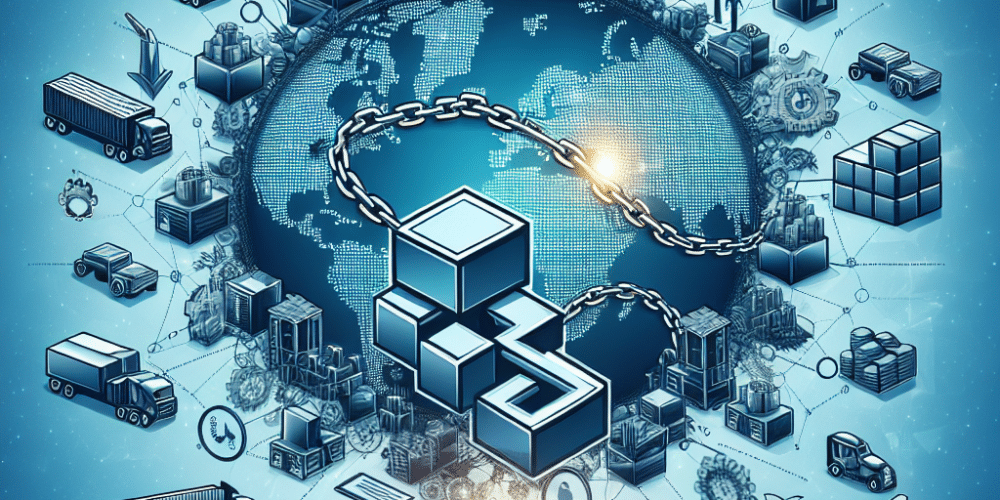In a groundbreaking development that promises to streamline operations and enhance transparency in logistics, several leading global supply chain companies have announced the integration of blockchain technology into their operational frameworks. This strategic move is set to revolutionize the supply chain sector, making processes more secure, swift, and reliable.
Supply chains, critical to the functioning of global trade, involve multiple stakeholders, including manufacturers, shipping companies, and retailers. Each of these parties needs real-time information to make informed decisions and manage their inventories efficiently. The traditional systems, often siloed and prone to discrepancies, have long posed challenges in the form of delays, fraud, and inefficiencies.
The adoption of blockchain technology in supply chain management marks a significant shift towards a more unified approach. Blockchain, a distributed ledger technology, ensures that data recorded about a product from its origin to delivery is immutable and accessible to all parties involved. This increases visibility, reduces the chances of counterfeit goods entering the market, and ensures compliance with regulations.
One major logistics company, TransGlobal Logistics, has launched a new blockchain platform that allows for end-to-end tracking of goods. “Our new system, ChainLinkX, not only enhances our operational efficiency but also provides our clients with unparalleled visibility into their shipments,” explained Maria Gomez, CTO of TransGlobal Logistics. “Blockchain’s ability to maintain a tamper-proof record of each transaction at every point in the supply chain is a game-changer for us.”
Industry experts believe that blockchain could decrease the costs associated with global trade by reducing wasted time and resources typically used to reconcile documentation and data. A recent study by the Global Supply Chain Institute highlighted that blockchain could potentially save the shipping and logistics sector up to 20% in total administrative costs.
Furthermore, the environmental impact of more efficient supply chains cannot be understated. Improved accuracy in demand forecasting and inventory management leads to a reduction in overproduction and waste, contributing positively to sustainability efforts—a significant concern in today’s environmentally conscious market.
The integration of blockchain in supply chains also paves the way for better crisis management. During events like the COVID-19 pandemic, many companies struggled with disruptions in their supply chains due to a lack of real-time data and visibility. Blockchain platforms can provide essential data to companies, helping them adapt and re-strategize promptly.
Moreover, blockchain’s role extends beyond mere tracking and documentation. It also enhances the security of the digital transactions involved in international trade. By using encrypted transactions and smart contracts, blockchain technology ensures that payment processes are not only quicker but also free from fraud. This is particularly crucial in an industry often targeted by cyberattacks.
While the benefits are promising, the transition to blockchain does come with challenges. For one, integrating blockchain technology requires significant initial investment and training of personnel. Additionally, there is the hurdle of standardizing the technology across multiple international jurisdictions, each with their regulatory frameworks.
Nevertheless, the momentum is strong, and the future looks promising. As more companies recognize the potential of blockchain to transform the supply chain landscape, a new standard of managing global trade is emerging. This development not only benefits the companies and the environment but ultimately the consumer, who will receive better, faster, and more reliable services.
As the global economy continues to grapple with the challenges posed by digital transformation, blockchain stands out as a beacon of potential, driving innovations that could redefine entire industries. For supply chain management, this might just be the beginning of a new, more efficient, and transparent era.



